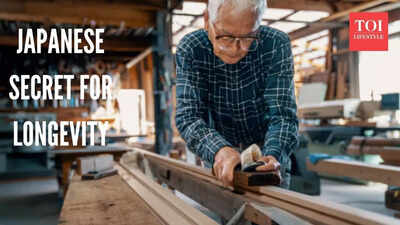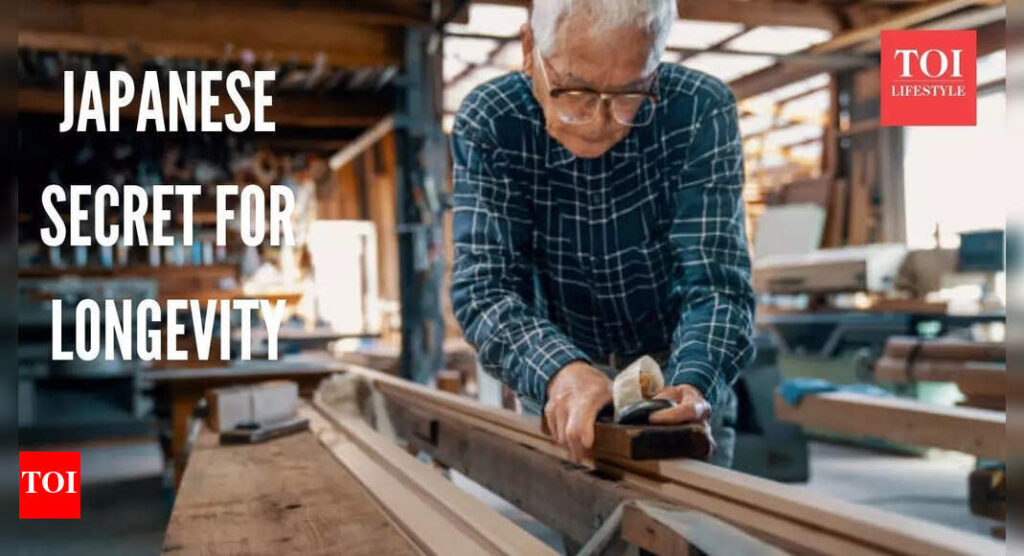 For ages, people have tried to decode what makes Japan such a healthy place to live. The arguments are endless, some credit the food, others point to lifestyle, community, or even the ocean air. But no one can quite say for sure what it is that helps so many people there live past 100. Because what Japan seems to do effortlessly, the rest of the world is still trying to reverse-engineer in labs and lifestyle fads.From biohacking routines to light therapy to “anti-aging” pills that promise to rewind time, we’ve been trying hard, you see, but we never quite get there. Not the way the Japanese have. Maybe it’s because their idea of living well doesn’t come bottled or branded. It’s embedded in how they move, eat, rest, and above all, how they find purpose.And perhaps that’s the real difference. In Japan, the concept of ikigai, a reason to wake up every morning, isn’t a slogan or a productivity hack. It’s how people live, even at a hundred. The country now has nearly 100,000 centenarians, the most in the world, and more per capita than anywhere else. And when The New York Times spoke to five of them, a pattern emerged: they all loved their work, and never thought of stopping.In Japan, work is not a part of your life, it is your life. The reason you live. Seiichi Ishii was twelve when he wandered into a bicycle repair shop and fell in love with the navy jumpsuits the workers wore. More than ninety years later, at 103, he still runs his own workshop. “If I die here, in my workshop, I will be happy,” he told The New York Times. “I am a working man, and that doesn’t change with age.” Seiichi’s humble work of bicycle repair shop gives him a purpose. And scientifically it keeps him moving, his routine helps him live a healthy life without going out of his way.Fuku Amakawa, now 102, still manages the restaurant she opened with her late husband six decades ago. “It is really beautiful that I can still work. Physically and emotionally, it changes the quality of my life,” she said. While now her children help her in the task, the place is the reminder for Fuku of years that has passed. She has spent over half a century here- cooking, serving, and building something that carries her legacy, one shaped by years of blood, sweat, and tears.Then there is 101-year-old farmer Masafumi Matsuo, who lives in the quiet hills of Kyushu, tends to his crops, cooks rice for his late wife’s shrine each morning, and plays with his great-grandson on weekends. “I dreamed of being an actor, but farming is what has kept me alive,” he told the New York Times. “I work to stay healthy.” His body might not support him to do rigorous task but it keeps him tethered to life when so much else has faded.Tomoko Horino, 102, still sells makeup from her home, her voice brightening as she calls clients. “I love making people feel beautiful,” she said. “That is the most important and joyful part of this.” A lot of her customers have died and now she sometimes take calls for beauty tips, but she has managed to stay relevant and true to her purpose. For Tomeyo Ono, her role as a teller of minwa, Japanese folk tales, comes from a deeply personal place: she wants to tell her story. Now 101, she is the oldest, and loudest, member of a storytelling collective. After the 2011 tsunami washed away her home in Fukushima, she vowed to weave the experiences of its survivors into her work. “I’m living to tell my stories,” Ms. Ono said, told The New York Times rolling down her cheeks, afraid that both the old tales and memories of the tsunami could fade away.In a world obsessed with anti-aging serums, shorter workweeks, and retirement dreams, Japan’s centenarians show that fulfillment isn’t found in escape but in engagement. They keep moving, creating, connecting, finding meaning in the everyday. It’s not that they resist aging; they live through it with intention. And perhaps that’s the quiet truth the rest of us keep missing: youth fades, but purpose, when nurtured daily, can outlast even time itself.Note: The information provided in this article is for educational purposes only and is not intended as medical advice. Always consult with a healthcare professional before starting any new medication or treatment.
For ages, people have tried to decode what makes Japan such a healthy place to live. The arguments are endless, some credit the food, others point to lifestyle, community, or even the ocean air. But no one can quite say for sure what it is that helps so many people there live past 100. Because what Japan seems to do effortlessly, the rest of the world is still trying to reverse-engineer in labs and lifestyle fads.From biohacking routines to light therapy to “anti-aging” pills that promise to rewind time, we’ve been trying hard, you see, but we never quite get there. Not the way the Japanese have. Maybe it’s because their idea of living well doesn’t come bottled or branded. It’s embedded in how they move, eat, rest, and above all, how they find purpose.And perhaps that’s the real difference. In Japan, the concept of ikigai, a reason to wake up every morning, isn’t a slogan or a productivity hack. It’s how people live, even at a hundred. The country now has nearly 100,000 centenarians, the most in the world, and more per capita than anywhere else. And when The New York Times spoke to five of them, a pattern emerged: they all loved their work, and never thought of stopping.In Japan, work is not a part of your life, it is your life. The reason you live. Seiichi Ishii was twelve when he wandered into a bicycle repair shop and fell in love with the navy jumpsuits the workers wore. More than ninety years later, at 103, he still runs his own workshop. “If I die here, in my workshop, I will be happy,” he told The New York Times. “I am a working man, and that doesn’t change with age.” Seiichi’s humble work of bicycle repair shop gives him a purpose. And scientifically it keeps him moving, his routine helps him live a healthy life without going out of his way.Fuku Amakawa, now 102, still manages the restaurant she opened with her late husband six decades ago. “It is really beautiful that I can still work. Physically and emotionally, it changes the quality of my life,” she said. While now her children help her in the task, the place is the reminder for Fuku of years that has passed. She has spent over half a century here- cooking, serving, and building something that carries her legacy, one shaped by years of blood, sweat, and tears.Then there is 101-year-old farmer Masafumi Matsuo, who lives in the quiet hills of Kyushu, tends to his crops, cooks rice for his late wife’s shrine each morning, and plays with his great-grandson on weekends. “I dreamed of being an actor, but farming is what has kept me alive,” he told the New York Times. “I work to stay healthy.” His body might not support him to do rigorous task but it keeps him tethered to life when so much else has faded.Tomoko Horino, 102, still sells makeup from her home, her voice brightening as she calls clients. “I love making people feel beautiful,” she said. “That is the most important and joyful part of this.” A lot of her customers have died and now she sometimes take calls for beauty tips, but she has managed to stay relevant and true to her purpose. For Tomeyo Ono, her role as a teller of minwa, Japanese folk tales, comes from a deeply personal place: she wants to tell her story. Now 101, she is the oldest, and loudest, member of a storytelling collective. After the 2011 tsunami washed away her home in Fukushima, she vowed to weave the experiences of its survivors into her work. “I’m living to tell my stories,” Ms. Ono said, told The New York Times rolling down her cheeks, afraid that both the old tales and memories of the tsunami could fade away.In a world obsessed with anti-aging serums, shorter workweeks, and retirement dreams, Japan’s centenarians show that fulfillment isn’t found in escape but in engagement. They keep moving, creating, connecting, finding meaning in the everyday. It’s not that they resist aging; they live through it with intention. And perhaps that’s the quiet truth the rest of us keep missing: youth fades, but purpose, when nurtured daily, can outlast even time itself.Note: The information provided in this article is for educational purposes only and is not intended as medical advice. Always consult with a healthcare professional before starting any new medication or treatment.


AloJapan.com